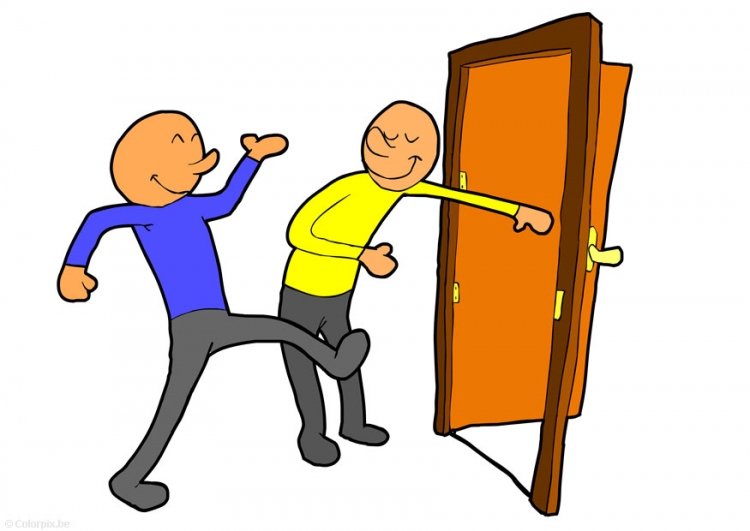
You are stuck at a traffic light and this guy behind you in the car starts honking like a madman and you start wondering “what is wrong with him”? You are patiently waiting for your turn at the doctor’s clinic when someone just barges in, without even waiting to provide an explanation for this unruly behavior sees the doctor and walks away without even an iota of shame. You call up your bank and someone picks up the phone and barks “haan bol” when you were expecting a polite hello. You are watching an event with your family and someone in the audience just walks up to the front, blocking your view, and starts taking pictures. These are some of the common behavioral patterns that we see around us. The fact is, nowadays, “being rude” is almost kind of an accepted characteristic. Be it in your personal or professional life. There is self aggrandisement galore and people are so involved in beating others in their own game! Very rarely you find them tottering on the periphery of niceties, trying to be polite and good mannerly. But they are a dying lot. The majority skews towards the other side and there are reasons for it!
We live in a highly competitive and stressful environment. The moment you step out of the cozy confines of your house, the chaotic world embraces you. Jostling with maddening traffic, maneuvering through myriad vehicles and jay walkers , battling for a parking space, trying to find a seat in a jam packed bus or a metro , the mornings sure does increase our anxiety levels. This is something which is very generic and experienced by almost everyone. But you can be unique in how you respond to these unnerving situations.

An old Japanese tale goes like this. A belligerent samurai once challenged a Zen master to explain the concept of heaven and hell. But the monk replied with scorn, “You’re nothing but a ruffian – I can’t waste my time with the likes of you!” His very honour attacked, the samurai flew into a rage and pulled his sword from his scabbard and yelled, “I could kill you for your impertinence.””That,” the monk calmly replied, “is hell”. Startled at seeing the truth in what the master pointed out , the samurai calmed down, sheathed his sword, and bowed thanking the monk for the insight. “And that,” said the monk, “is heaven.”
Whenever we encounter unsettling situations in our life, we can deal with it in two distinct ways. We can either respond or react to it. A reaction is impulsive and often instantaneous. As human beings, we tend to react while giving little or no thought to the actual circumstances. Responding, on the other hand, involves an actual assessment of the situation so that we can make an informed decision about how best to proceed, based on the particular circumstances that we are faced with. As the Zen master explained above, we can either choose to live in heaven or hell. Living in heaven is all about respecting and valuing those around us and having a goal that is about always aiming to project what we ourselves want to receive.
More than the problem, it is always our reaction to the problem which hurts us more. It is not the irate customer that is disturbing, but rather our inability to handle the disturbance caused by the customer. It is not the traffic jam that is disturbing but rather our inability to handle the disturbance caused by the traffic jam is all about responding and not reacting. When you consciously respond to situations it tends to bring in that much elusive politeness to our demeanor and bearing. And that is the need of the hour! Being polite is about being aware and respecting the feelings of others.
In this ramshackle rubric of human dichotomy, of the ubiquitous evil and the preternatural good, politeness stands tall like a beacon of light on a hazy nebulous night. And it unequivocally creates a huge positive impact to any unsettling situation that we face in our life, be it personal or professional.
It is easy to conveniently ignore your colleague or team member when you see them in the office corridor or refuse to acknowledge them with a “Good Morning” or “Hi” or even a perfunctory nod. You can refuse to get up when a senior person walks into your cabin or be nonchalant when they try to strike a conversation with you. You can be apathetic and indifferent to others problems or worries. But it takes real courage to be nice and friendly and empathetic and treat people with respect and dignity. In the work arena it is all the more important to practice this as it is the quintessence of every leadership role.
It is perfectly fine to have differences of opinion and conflicting view points as long as it stays within the premise of organizational growth and development.
The differences, in all its complexities, should cease to exist when you meet up for lunch or have tea together. We keep hearing about the term “People Management Skills”, which are nothing but acknowledging the person in front of you and valuing his skills, competencies and potential.
The profound philosophy of “Live and let live” goes a long way in building long lasting, sustainable and fruitful relationships with people around you. And that is the first step towards creating a synergic team, bustling with the energy of togetherness and devoid of the embers of resentment and disenchantment.
Being empathetic, accommodative, helpful and friendly can diffuse the purported disenchantment amidst the employees and act as the perfect panacea for creating a blissful and enlivening work atmosphere.

